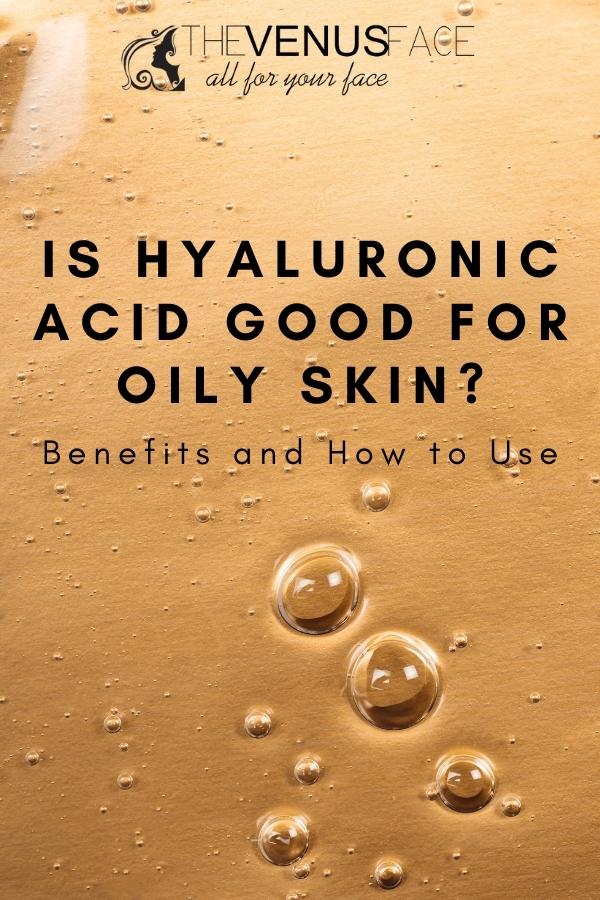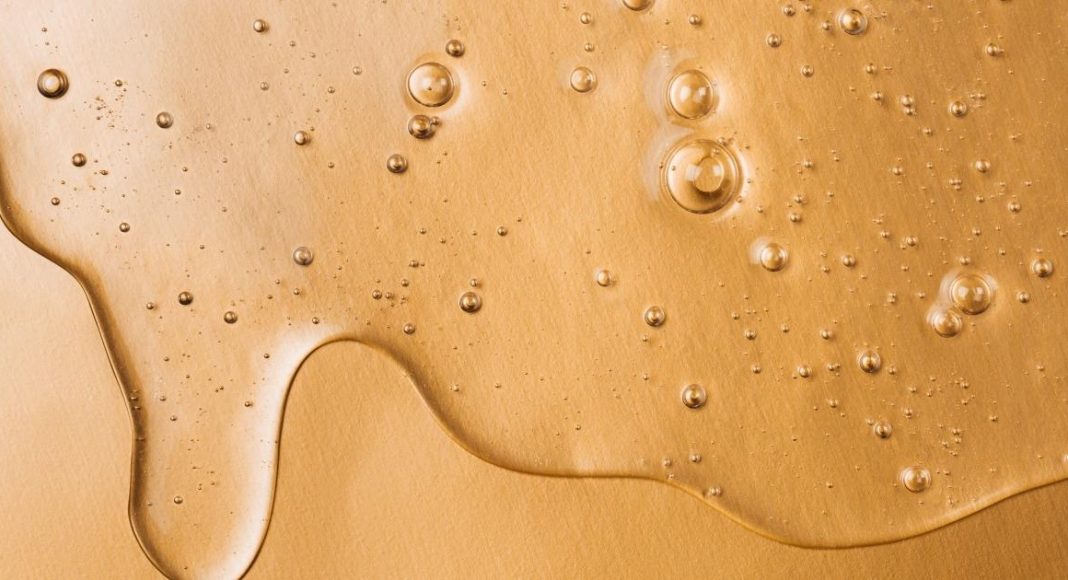Is hyaluronic acid good for oily skin? Learn about it in this article.
Many people suffer from oily skin, which can be a pain to deal with. Oily skin is caused by the overproduction of sebum, an oily substance that helps to keep skin moisturized. When too much sebum is produced, it can build up on the surface of the skin, leading to a greasy appearance. Oily skin is more prone to breakouts, as the excess oil can clog pores and trap bacteria. In addition, oily skin can be difficult to keep clean and may require special cleaning techniques. However, there are some benefits to having oily skin. The extra oil helps to keep skin hydrated and can actually help to reduce the appearance of wrinkles. So, while oily skin may be a nuisance, it’s not all bad.
Despite the advantages, most people want to get rid of their oily skin. And one popular way to do this is by using products that contain hyaluronic acid. Yet, is hyaluronic acid good for oily skin?

Does hyaluronic acid help oily skin?
Yes, it does. Many people think that the only way to combat oily skin is to dry it out with products that strip away all of the natural oils. However, this can actually end up making the problem worse. When the skin is stripped of its natural oils, it goes into overdrive to produce more oil, leading to an endless cycle of oiliness. One key component in keeping skin hydrated and balanced is hyaluronic acid. This substance helps the skin to retain moisture, which can in turn help to reduce oil production.
More: List of High-Rated Korean Foundations for Oily Faces
Hyaluronic acid benefits for the skin
This acid gives you many benefits:
Natural moisturizer
When it comes to keeping your skin hydrated, there are a lot of products on the market that claim to be able to do the job. But what if there was a naturally occurring substance that could not only help to keep your skin hydrated, but also give it a more youthful appearance? Enter hyaluronic acid. Hyaluronic acid is found naturally in the body, and its main function is to help keep tissues lubricated.
Anti-aging
This acid is also known for its anti-aging properties. As we age, our skin produces less and less hyaluronic acid. This can lead to dryness, wrinkles, fine lines and a loss of elasticity. By using products that contain hyaluronic acid, you can help to replenish the levels of this substance in your skin, leading to a more youthful appearance.
Stimulate collagen production
Hyaluronic acid can also help to stimulate the production of collagen, a protein that is essential for healthy, youthful skin. Collagen helps to keep skin firm and elastic, and a lack of this protein can lead to sagging skin, which is usually a condition when aging.
More: Stimulating collagen by using microcurrent devices
Humectant
This substance is also known as a humectant, which means that it helps to keep the skin hydrated by drawing moisture from the air. Unlike moisturizer, which just sits on the surface of the skin, hyaluronic acid actually penetrates the skin to provide long-lasting hydration. This benefit is ideal for those with oily skin because it can help to keep the skin hydrated without making it greasy.
More: List of High Rated Drugstore Foundations for Oily Faces
How to use hyaluronic acid for the skin
Because of its nature, it’s not worth making your own hyaluronic acid. However, you can buy products that contain this substance. These products come in a variety of forms, including serums, creams, gels…Therefore, the most appropriate way to use this substance is to purchase products that contain it.
Serum
The most popular form of hyaluronic acid in serum. Serums are typically lightweight and easily absorbed by the skin. They can be used alone or under makeup. If you have oily skin, look for a serum that is oil-free and non-comedogenic, meaning it won’t clog pores. Using serum containing this acid is highly recommended because it is the most effective way to get this substance into the skin.
More: Homemade Serums for Greasy Faces
Moisturizer
In some cases, you may not want to use an additional product, and that’s where hyaluronic acid-infused moisturizer comes in. This type of moisturizer contains this substance to help keep the skin hydrated. It can be used in place of a regular moisturizer or in addition to one.
More: DIY Natural Moisturizers for Greasy Faces
Cream
Some people prefer to use a cream instead of a serum or moisturizer. Creams are typically thicker than serums and can be used to hydrate dry skin. Although, using cream is not the best way to get this substance into the skin because it does not penetrate as well as a serum.
Gel
Gels are typically used to treat conditions like eczema. They can be applied directly to the skin or added to lotions and creams. Gels containing this substance can help to soothe dry, irritated skin.
Final thought
Hyaluronic acid is a great way to keep your skin hydrated, especially as you age. This substance naturally occurs in your body and helps to lubricate tissues. It also has anti-aging properties and can help to stimulate collagen production. You can find products that contain hyaluronic acid in many forms, including serums, creams, gels, and moisturizers. Be sure to do a patch test before using any new product on your skin.
More:
- Use Salicylic Acid for Greasy Skin
- Use Lactic Acid for Greasy Skin
- Use Glycolic Acid for Greasy Skin
- Use Niacinamide for Greasy Skin
F.A.Q
Is hyaluronic acid bad for oily skin?
No, it isn’t. In fact, it can be considered one of the best ingredients for people with oily skin as it helps to hydrate the skin without making it greasy. Besides that, this acid is non-comedogenic, meaning it won’t clog pores.
Do I need hyaluronic acid if I have oily skin?
There are many acid products available in the market, for example, lactic acid, and each one has different functions. If you are looking for an ingredient to help with hydration, then hyaluronic acid would be a great choice regardless of your skin type.
Does hyaluronic acid make you oily?
No, it doesn’t. It is a natural moisturizer and humectant, which means it helps to keep the skin hydrated by drawing moisture from the air.
More: How to Use Hyaluronic Acid and Retinol Together
References: https://www.frontiersin.org/articles/10.3389/fvets.2019.00192/full


